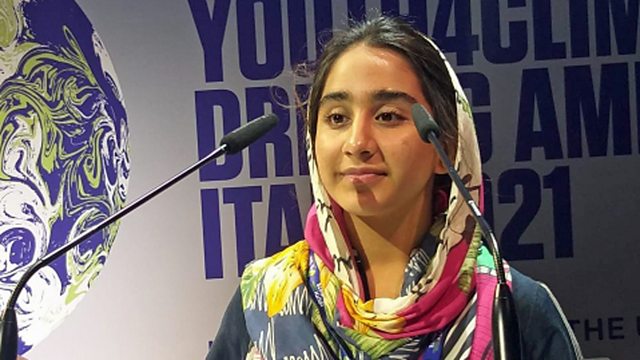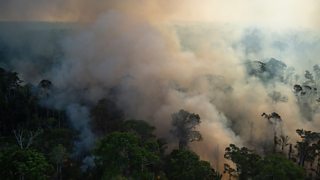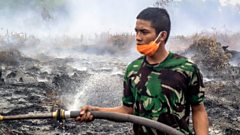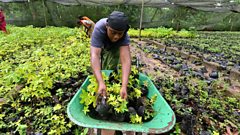Climate change: Will the COP26 agreement curb temperature rises?
A listener in Moshi, near Mount Kilimanjaro, in Tanzania, says temperatures near his home now reach 34 degrees, which is melting the snow cap, and affecting local food production.
The effects of rising temperatures include melting glaciers and extreme weather patterns, such as storms, heat waves, floods, and droughts. One of the priorities at the recent COP26 summit was to agree on steps to keep average global temperature change below 2掳C and as close as possible to 1.5掳C. A listener in Moshi, near Mount Kilimanjaro, in Tanzania, says temperatures near his home now reach 34 degrees, which is melting the snow cap, and a lack of rain has meant his neigbour's gardens no longer produce fruit and vegetables. He asks if the agreement made at COP26 will help curb the rise in temperatures in Tanzania.
Zainab Waheed, Pakistan鈥檚 Delegate to the Pre-COP 26 Youth4Climate Conference and climate activist, and Deputy Speaker Senator Loren Legarda from the Philippines respond to his question. Zainab Waheed says that it's unlikely that temperatures can be controlled as the main emitters are able to continue creating emissions as long as they agree to offset these in the future. Loren Legarda also believes temperature rises cannot be held to 1.5 degrees. She says that the data and projections of the rise in greenhouse gas emissions point to a rise, according to the IPCC, of 2.7 degrees by the end of the century.
Photo: Zainab Waheed, Pakistan鈥檚 Delegate to the Pre-COP 26 Youth4Climate Conference Courtesy of the Waheed family
Duration:
This clip is from
More clips from World Questions
-
![]()
Why we need an alternative GDP measure that respects nature
Duration: 04:15
-
![]()
Green growth: How can poorer countries develop sustainably?
Duration: 02:30
-
![]()
Replacing Romania鈥檚 lost cinemas
Duration: 02:05






